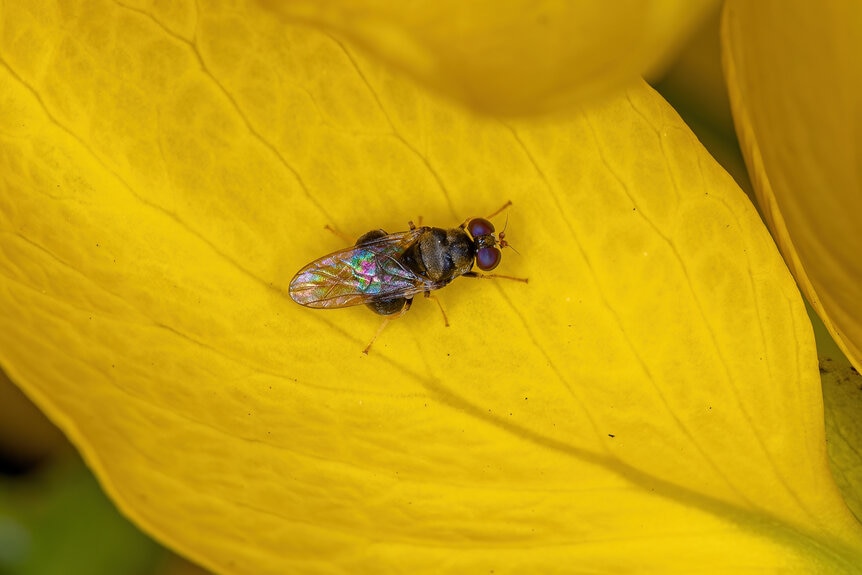Create a free profile to get unlimited access to exclusive videos, sweepstakes, and more!
Turning Dead Bugs into Biodegradable Plastic
Researchers are making biodegradable bioplastics made of black soldier flies.
Vampires are often presented as romantic, their beauty and power equal only to their evil. For their familiars, however, vampires are a source of near-constant torment. Given enough time, that sort of pressure is bound to weigh on a person until they break. That’s the situation for poor, wretched Renfield (streaming now on Peacock!), the semi-human familiar to none other than Dracula (Nicolas Cage) himself.
In exchange for his service, Renfield (Nicholas Hoult) is granted a portion of Dracula’s power, but at an additional cost. To recharge his supernatural batteries, Renfield has to eat creepy crawlies. Here in the real world, scientists are increasingly looking to bugs as solutions to a variety of problems from food production to cleaning up plastic pollution.
RELATED: These Plastic-Muching Superworms Are Living Recycling Plants
Now, a team of researchers is working to develop bioplastics which could be made of, and consumed by, black soldier flies. The results of their ongoing research were recently presented at the fall meeting of the American Chemical Society (ACS).
Making Biodegradable Bioplastics From Dead Flies
Plastic is one of the most common materials in the modern world and it’s primarily made from petroleum. Bioplastics are chemically and functionally similar but come from biological sources. Historically, bioplastics have been predominantly made from plant materials like sugar cane, corn, and trees.
Those materials are abundant, but they are also in demand and have other primary uses. Any corn we use for bioplastics is corn we can’t eat. With that in mind, researchers went in search of an underutilized material they could tap for bioplastics. They landed on black soldier flies, particularly the waste products from farming black soldier flies.
You may not be interested in eating black soldier fly larvae yourself (although bug proteins probably are coming to a menu near you in the future) but they are full of protein and highly nutritious. For those reasons, the larvae are increasingly farmed for animal feed. Chickens don’t have the same gastronomic hang-ups as we do.
Adult flies die quickly after breeding and are discarded. They end up thrown away where they are presumably consumed by other animals and microbes. Researchers still want that to happen, they just want to turn the dead flies into plastic first. Through a complex series of manipulations, researcher can extract the chitin from the exoskeletons of dead black soldier flies and convert it into a polymer known as chitosan. Then, they strip the acetyl groups from the chitosan, exposing reactive amino groups that can be modified into useable bioplastics.
RELATED: Necrobotics: How Scientists Are Using dead Spiders as Corpse Claw Machines
One potential application involves a chitosan-based hydrogel capable of absorbing 47 times its weight in water, in less than minute. It could be mixed with soil in drought-prone areas to keep the soil moist. When it rains, or when fields are watered, the hydrogel would soak up and hold onto moisture, releasing it slowly back into the soil. And, because the hydrogel is basically just fly bodies, it would break down and release nutrients into the soil over time.
Eventually, researchers hope to develop other bioplastics that could be used in place of conventional petroleum-based plastics. Waste plastics could then be collected and used as a food source for the next generation of black soldier flies. The vision is a self-sustaining (if slightly cannibalistic), pollution-free plastic production system. We’d just have to get past the idea of drinking water from a bottle made of dead flies.
If Renfield can do it (and stand up to Dracula besides), we can too. Catch Renfield, streaming now on Peacock!































